6 citations,
April 2005 in “Journal of dermatological science” The study found nine new hair protein genes in human hair follicles.
 20 citations,
September 2018 in “Journal of colloid and interface science”
20 citations,
September 2018 in “Journal of colloid and interface science” Modified keratin binds better to hair, especially bleached hair.
1 citations,
January 2010 in “Biophysical journal” Hair fluorescence intensity can measure radiation exposure effectively.
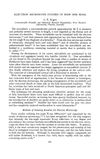 191 citations,
November 1959 in “Annals of the New York Academy of Sciences”
191 citations,
November 1959 in “Annals of the New York Academy of Sciences” Hair and wool have complex microscopic structures with microfibrils and varying cystine content.
22 citations,
November 2008 in “The journal of investigative dermatology/Journal of investigative dermatology” Cystatin M/E helps in the final stages of hair and nail formation by controlling certain enzymes.
19 citations,
July 1964 in “PubMed” Hair follicle cells become four types: medulla, cortex, cuticle, and inner root sheath.
 17 citations,
June 2011 in “The journal of investigative dermatology/Journal of investigative dermatology”
17 citations,
June 2011 in “The journal of investigative dermatology/Journal of investigative dermatology” The G60S Connexin43 mutation causes hair growth issues and poor hair quality in mice, similar to human ODDD patients.
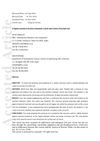 10 citations,
November 2016 in “International Journal of Cosmetic Science”
10 citations,
November 2016 in “International Journal of Cosmetic Science” A tough membrane between the outer and inner layers of human hair protects it from damage.
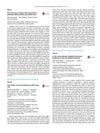 September 2016 in “Journal of dermatological science”
September 2016 in “Journal of dermatological science” Adult skin cells can be used to create new hair in a lab.
4 citations,
July 2010 in “International Journal of Cosmetic Science” Curved human hair has different structures on its convex and concave sides.
51 citations,
September 2012 in “Biomacromolecules” Disulfide bonds make keratin in hair stronger and tougher.
 September 2024 in “Journal of Investigative Dermatology”
September 2024 in “Journal of Investigative Dermatology” A new tool can analyze hair to detect changes due to hormones, genetics, and aging.
15 citations,
January 2012 in “International journal of trichology” The HairCheck® device is effective for measuring hair loss and growth in people with alopecia.
1 citations,
January 2022 in “Journal of Drug Delivery Science and Technology” The optimized microemulsion with cinnamon oil effectively delivers finasteride through the skin without damaging hair.
 July 2022 in “New Zealand journal of agricultural research”
July 2022 in “New Zealand journal of agricultural research” The KRTAP27-1 gene variations in sheep may affect wool length and weight.
January 2021 in “Indian journal of veterinary pathology” A 15-year-old female labrador had a large ovarian tumor removed.
 1 citations,
January 1980 in “Archives of Dermatology”
1 citations,
January 1980 in “Archives of Dermatology” Syphilis chancres can be atypical, and fiber implantation for baldness is risky and often fails.
 September 2017 in “Journal of Investigative Dermatology”
September 2017 in “Journal of Investigative Dermatology” Thermal imaging is a useful non-invasive method to diagnose active inflammation in frontal fibrosing alopecia.
 98 citations,
June 2008 in “Human mutation”
98 citations,
June 2008 in “Human mutation” A genetic change in the EDAR gene causes the unique hair traits found in East Asians.
 48 citations,
December 2004 in “Differentiation”
48 citations,
December 2004 in “Differentiation” Tooth papilla cells can help regenerate hair follicles and grow hair.
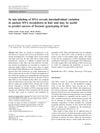 27 citations,
April 2011 in “International journal of legal medicine”
27 citations,
April 2011 in “International journal of legal medicine” In situ DNA labeling in hair can help predict forensic DNA analysis success.
 397 citations,
February 2004 in “British Journal of Dermatology”
397 citations,
February 2004 in “British Journal of Dermatology” Minoxidil boosts hair growth by opening potassium channels and increasing cell activity.
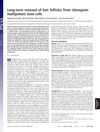 291 citations,
October 2005 in “Proceedings of the National Academy of Sciences of the United States of America”
291 citations,
October 2005 in “Proceedings of the National Academy of Sciences of the United States of America” Adult stem cells from rat whisker follicles can regenerate hair follicles and sebaceous glands.
 34 citations,
August 1966 in “Experimental cell research”
34 citations,
August 1966 in “Experimental cell research” Keratin fibrils in hair form and stop growing at specific points in the follicle.
 30 citations,
May 2018 in “Experimental Dermatology”
30 citations,
May 2018 in “Experimental Dermatology” The conclusion is that future hair loss treatments should target the root causes of hair thinning, not just promote hair growth.
 16 citations,
March 2019 in “Experimental dermatology”
16 citations,
March 2019 in “Experimental dermatology” Injury changes how hair follicle stem cells behave, depending on the hair growth stage.
 14 citations,
September 2018 in “International Journal of Molecular Sciences”
14 citations,
September 2018 in “International Journal of Molecular Sciences” Mackerel-derived fermented fish oil helps hair grow by activating growth pathways and increasing cell proliferation.
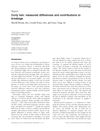 13 citations,
November 2012 in “International Journal of Dermatology”
13 citations,
November 2012 in “International Journal of Dermatology” Curly hair breaks more easily, especially with chemical treatments, but simpler grooming reduces breakage.
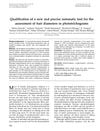 9 citations,
January 2011 in “Skin Research and Technology”
9 citations,
January 2011 in “Skin Research and Technology” The new automatic tool accurately measures hair thickness and is reliable.
 5 citations,
February 2012 in “Aesthetic Plastic Surgery”
5 citations,
February 2012 in “Aesthetic Plastic Surgery” A man developed skin cancer on his scalp after multiple artificial hair grafts.




















